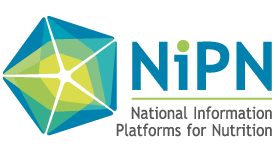Quality assurance of routine data (2/10)
2. Why assess routine data quality?
Although routine data are administrative data depending on the purpose of use, it is required to assess their quality and identify weaknesses or areas to improve.
Deciding whether the data are good enough to use, will depend on the type of analysis (for instance specific analysis, continuous quality improvement, etc.).
Most countries already dispose of routine data quality assessment processes, which are usually focused on core indicators that do not necessarily include nutrition data.
It might be useful, even crucial, to investigate whether already validated data at country level are good enough for the intended analysis to ensure that data quality is in coherence with the needs of NIPN analysis.
Most of the existing tools, such as the WHO Data Quality Review toolkit (DQR) focus on core indicators of programmes or projects (e.g. immunisation, antenatal care, tuberculosis, HIV and malaria indicators). Nutrition indicators are often not included in regular quality assessments carried out in countries.
The National Information Platforms can have an added value on advocating to integrate the nutrition indicators in the data quality assessment process within HMIS.
Finally, guidance on choosing a quality assessment tool and how to use it, can facilitate cross-country learning and comparison, thus providing a unique standard of quality.


